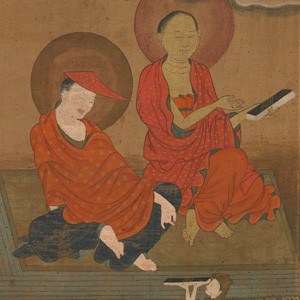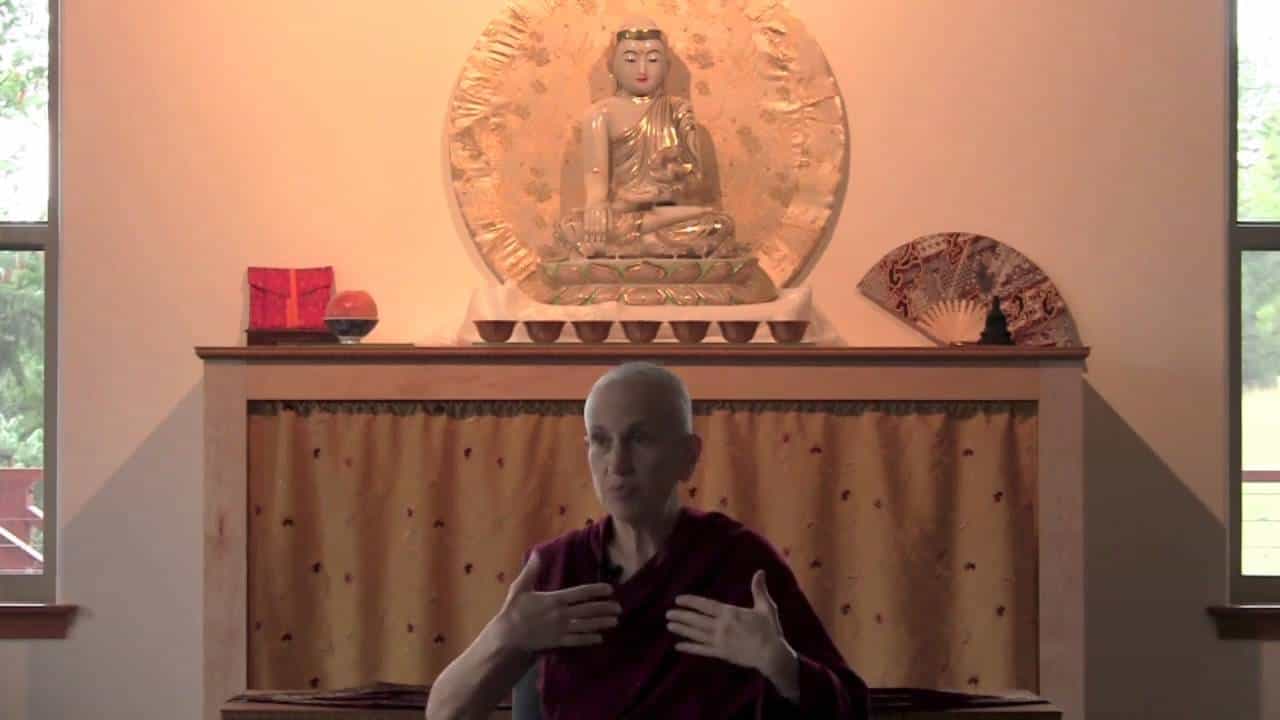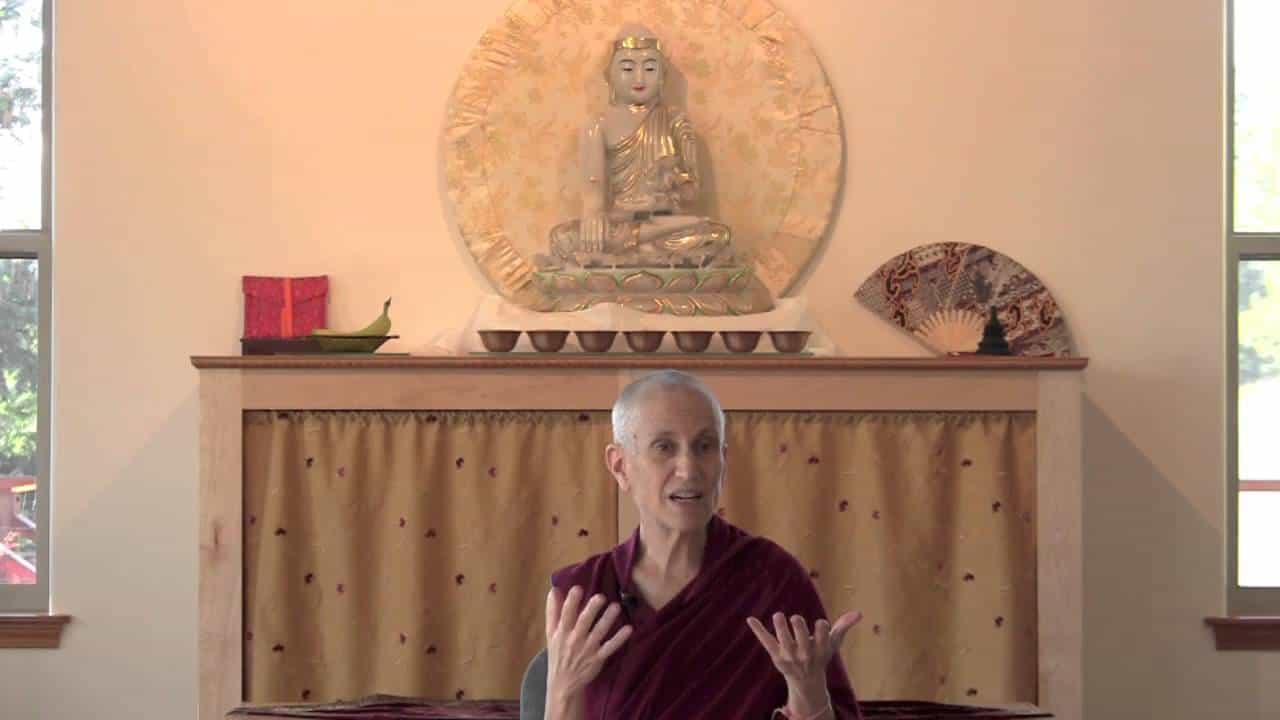Quiz: Aryadeva’s 400 Stanzas, Chapter 10

Venerable Thubten Chodron put together the questions below for a review of Aryadeva's 400 Stanzas on the Middle Way, Chapter 10: Refuting misconceptions of the self.
-
What are the main points of this chapter?
-
What are the reasons why someone isn’t inherently a woman, man, or neuter?
-
On what basis is someone said to be a woman, man, or neuter? How does contemplating that you aren’t inherently a woman, man, or neuter change your image or feeling about yourself? Can you imagine being another sex?
-
How would you refute Joe Blow’s contention “the self is permanent and is the one entering and leaving samsara. If there were no self, who is in samsara due to karma? Who would gain liberation?”
-
Having refuting the above statement, how do you explain how a person is reborn in samsara under the influence of karma and can attain liberation? Who is in samsara and who attains liberation?
-
How are karmic seeds carried from one life to the next?
-
Who moves your body if there is no self?
-
How do you account for memory of previous lives if there is no soul or permanent self that goes from one life to the next? If the person with your present name and aggregates dies, who is reborn? What is the link between that person and the you of today? Can the brain remember previous lives?
-
Is your mind permanent? Why or why not? Is your mind you? Why or why not?
-
How do you refute the idea of one cosmic mind that we emerge from at conception and dissolve into at death?
-
There is a feeling that you are inside your body. On what basis do you feel that? Is there a you inside your body? If there is, where is it? If there isn’t, whose body is it?
-
If the self exists at the time of liberation, why do you say there is no self when you’re in samsara? If the self doesn’t exist at the time of liberation, who attained liberation?
-
Explain the verse:
Since functional things arise
There is no discontinuation.
And because they cease
There is no permanence.
The quiz reviews can be found here: Questions 1-5, Questions 6-9, and Questions 10-13.
Venerable Thubten Chodron
Venerable Chodron emphasizes the practical application of Buddha’s teachings in our daily lives and is especially skilled at explaining them in ways easily understood and practiced by Westerners. She is well known for her warm, humorous, and lucid teachings. She was ordained as a Buddhist nun in 1977 by Kyabje Ling Rinpoche in Dharamsala, India, and in 1986 she received bhikshuni (full) ordination in Taiwan. Read her full bio.


